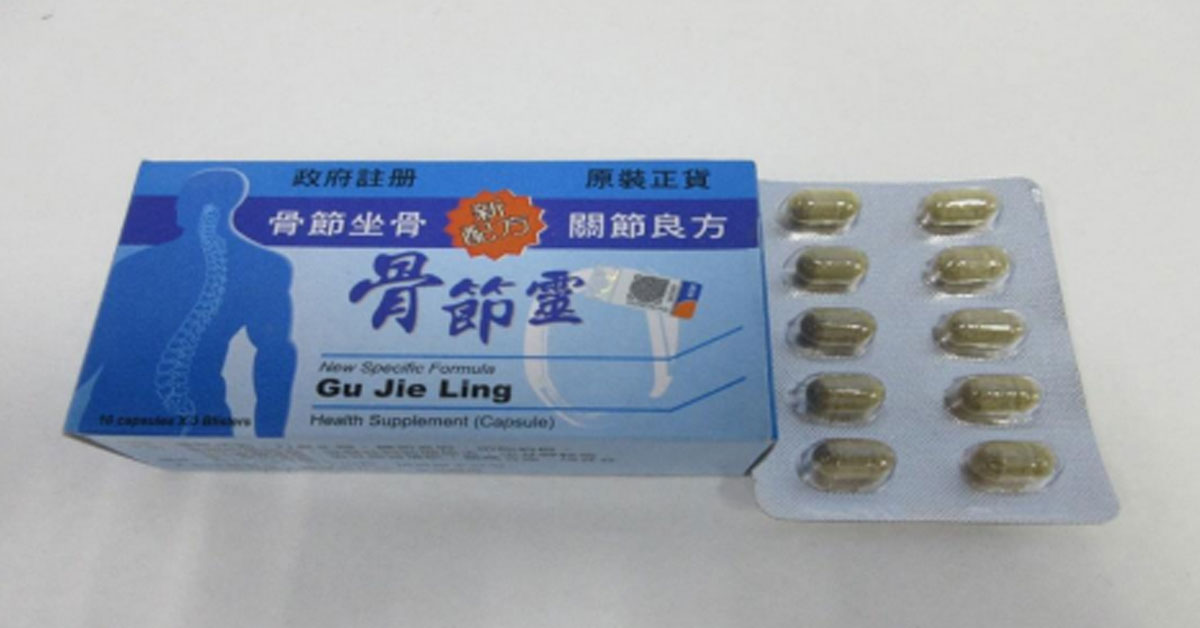The Health Sciences Authority (HSA) has issued a public warning against Gu Jie Ling (骨節靈) pills after a user in her 60s developed a serious condition known as Cushing’s syndrome. Her condition caused her face to swell, developing a “moon face”.
Gu Jie Ling is a Traditional Chinese Medicine (TCM), marketed as a remedy for back, joint, and muscular pain.

The woman bought the product from a “traditional medicine shop” in Johor Bahru to ease her foot pain. The product packaging made promises of being made from all-natural herbal ingredients and carrying no side effects.
But HSA’s analysis of the product found the steroid dexamethasone in the pills and traces of an antihistamine, cetirizine.
Now we know (not) to trust traditional medicine packaging like we trust the loudest discounts and deals advertisements. It’s always too good to be true.
What is Moon Face?
As you might have guessed, moon face, also known by the medical name “moon facies”, is a condition that causes your face to swell and become rounder—like a moon.
And it’s not just the slight face puffiness you get early in the morning. People experiencing moon face see their faces swell so much that they can no longer see their ears as well as before.
While it is not dangerous to health, the main challenge of moon face comes with its effect on one’s confidence and self-image.

I mean, understandably, you wouldn’t want to be walking around in public knowing your face is twice the size of what it used to be.
What Causes Moon Face?
And what causes moon face? How can I stop it from happening to me?
Moon face is often caused by steroids found in the corticosteroid family, most commonly prednisone. Very ironically, these are drugs that are prescribed to ease swelling and irritation in health conditions like asthma, hives, or lupus.
Prednisone and other corticosteroids create an unfavourable combination of increased appetite and the shifting of weight deposits. They cause people to eat more, and then store the fat along the sides of their skull. Another side effect is increased water retention, which can cause further swelling and puffiness.
But before you blacklist and reject corticosteroid prescriptions from your doctor, moon face is not a side effect of corticosteroid medication.
Instead, moon face is actually a symptom of existing conditions that change your hormonal levels, some of which are caused by the long-term use of corticosteroids.
One such example is Cushing’s syndrome, which happens when the body produces or receives too much of the hormone cortisol. The most common cause of Cushing’s syndrome is the long-term use of corticosteroids, but it also has other causes like tumours and high stress levels.
Cushing’s syndrome is a rare hormonal disorder that affects a lot of your body systems and could cause many other health issues like high blood pressure, mood instability, weakness, and hirsutism or excessive hair growth.
So, long-term use of corticosteroids may cause disorders like Cushing’s syndrome, whose side effect may cause moon face (amongst many, many other more dire side effects).
How You can be a Smarter Consumer of TCM products
As with all other forms of health products, TCM has its fair share of risks and side effects.
While some may stay loyal to TCM remedies over other western medicines, HealthHub warns that some of the natural ingredients in TCM, like herbs or animal parts, can be harmful to people. It may even be dangerous to take them together with western medicine as it could result in unwanted effects.
So, if you are currently on medication, it is important to seek medical supervision before taking TCM products.
Also, beware of safety claims that a product is 100% safe and does not result in any side effects. Even the most common types of herbs could cause allergic reactions in some people and experiencing some side effects is always normal when taking medicine. More often than not, these exaggerated claims point to something being amiss with the product.
Lastly, be wary of where you buy your medicines from. HSA warns against buying dubious products from unverifiable sources, and to exercise caution when buying treatments overseas as it will be difficult to determine the reputation of the dealer and quality of the products.
Approved and listed Chinese Proprietary Medicines (CPM) can be found on this HSA webpage. It’s always better to be safe than sorry. Sparing a few minutes to do a check could go a long way in preventing future troubles.
Would you be jailed for being half-naked in public? Well, the answer will shock you. Seriously. Watch this to the end and you'll understand:




